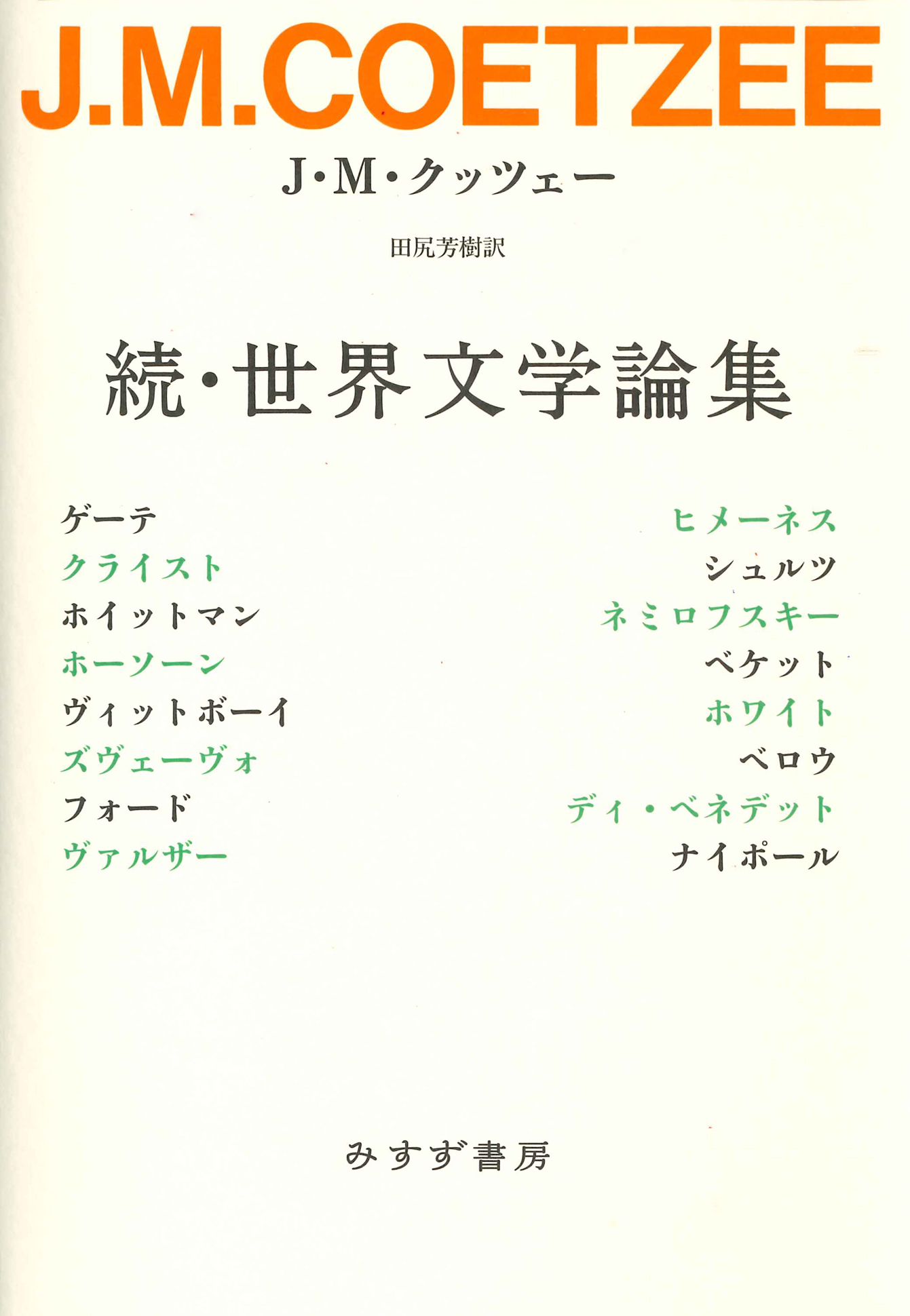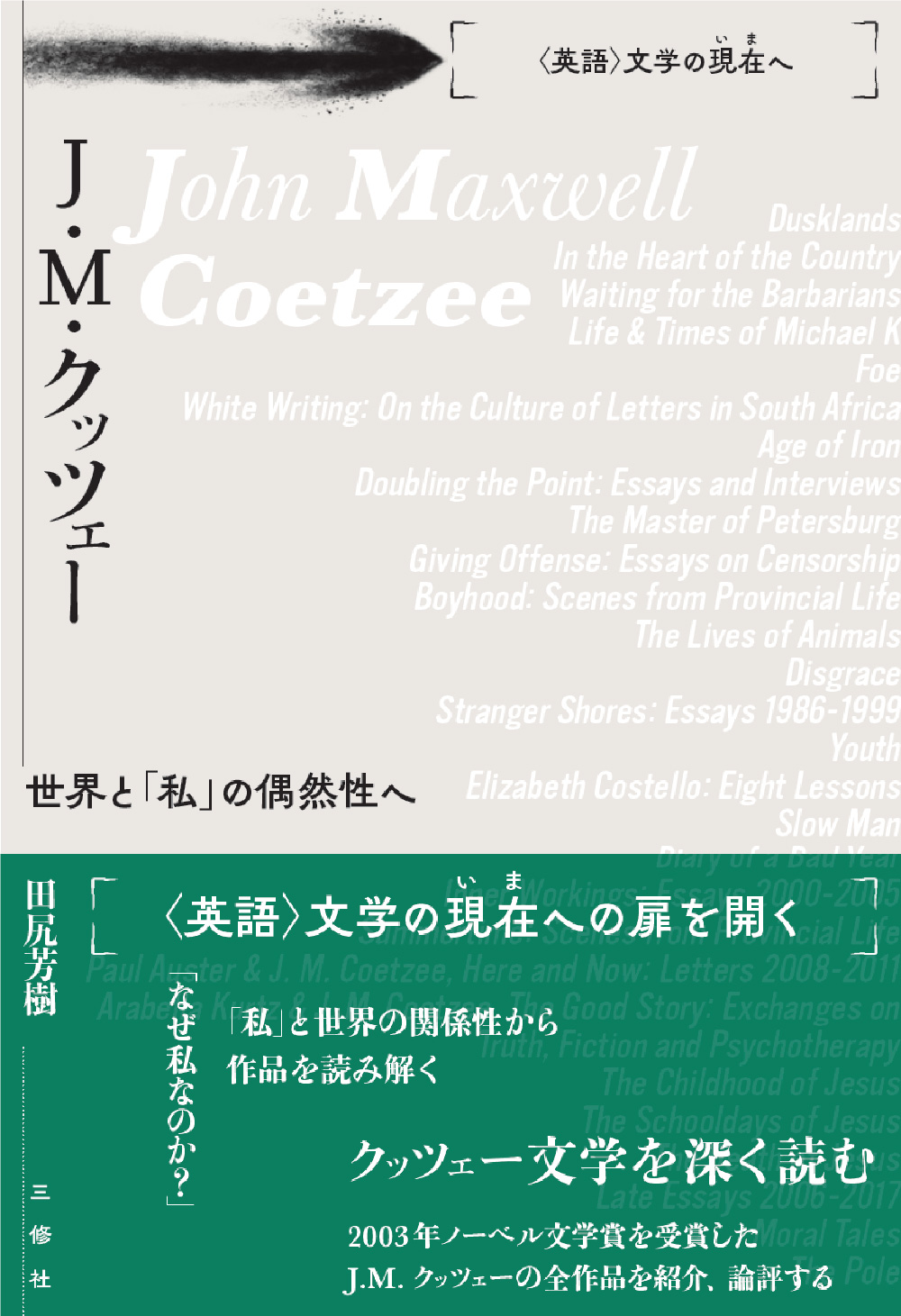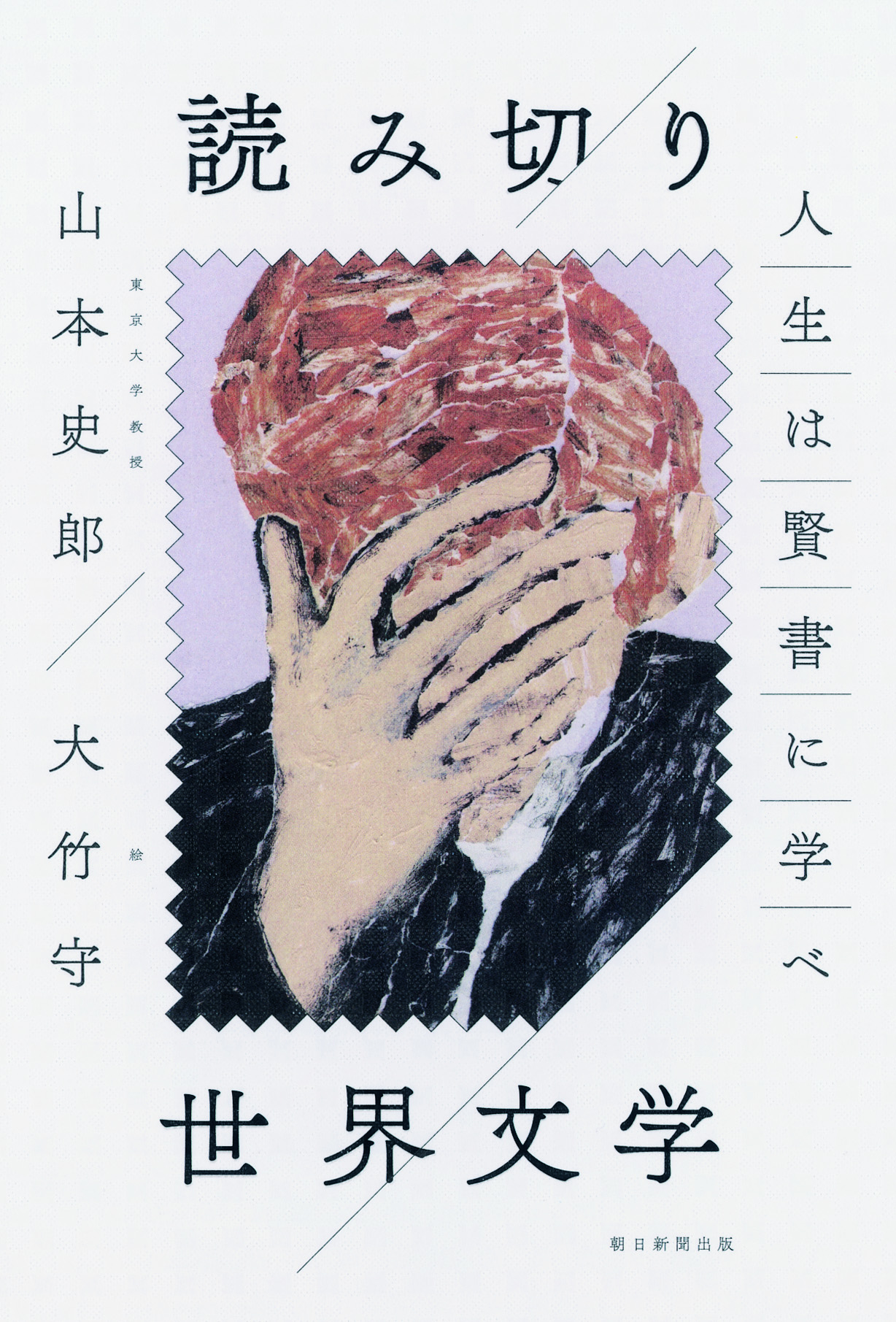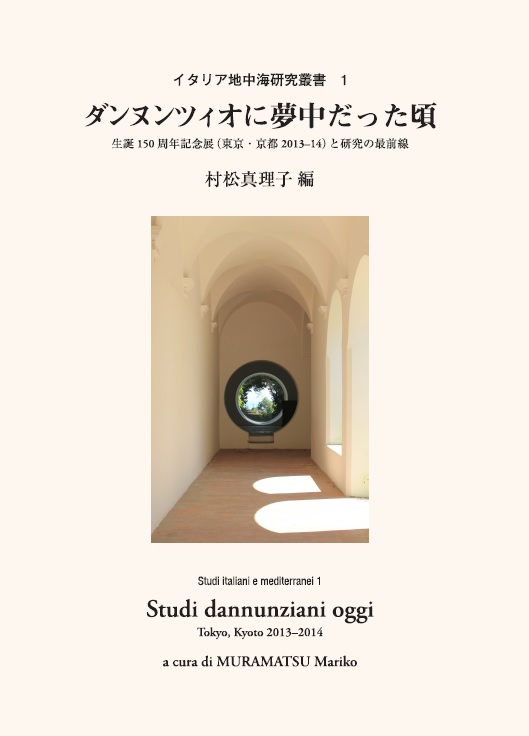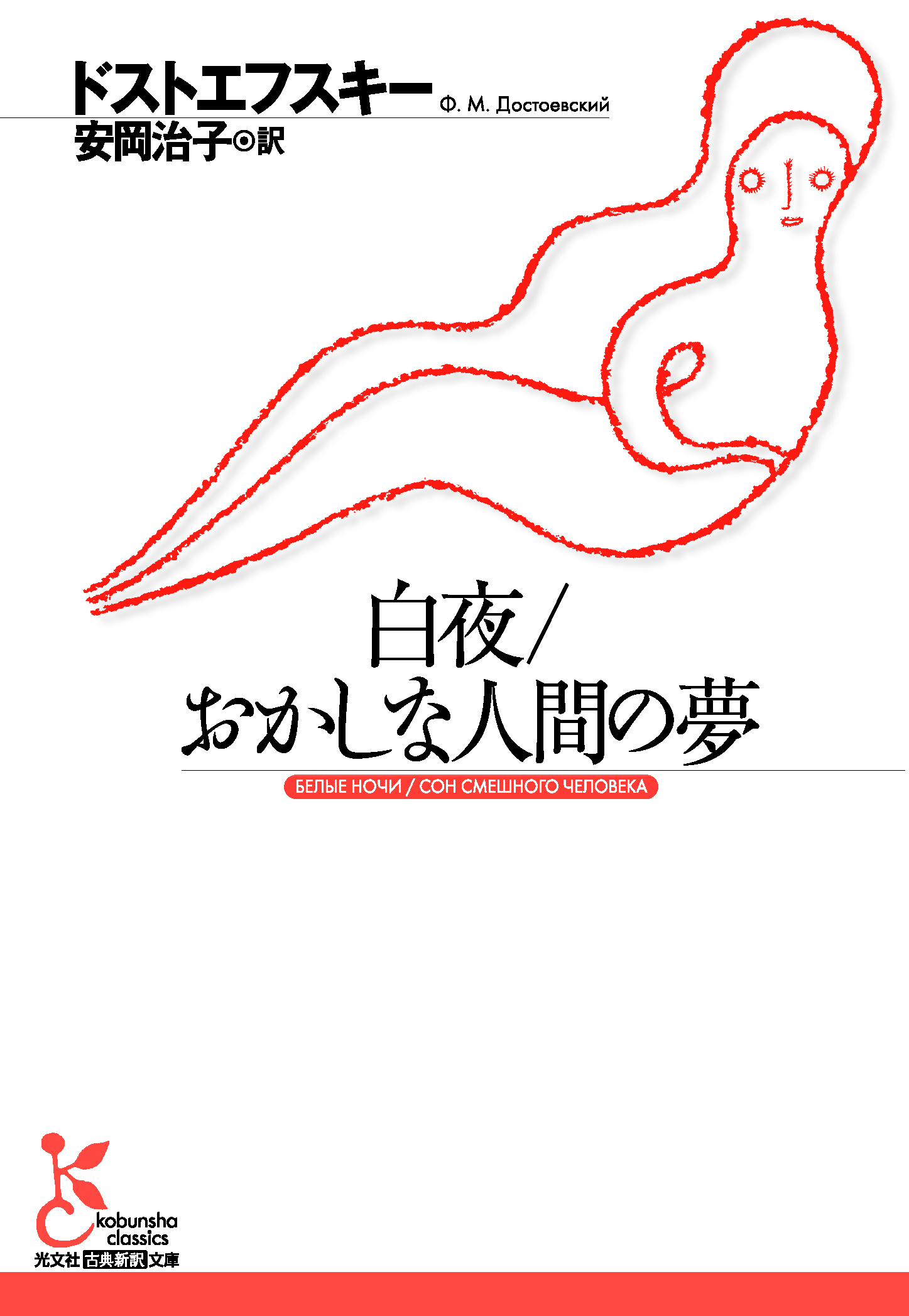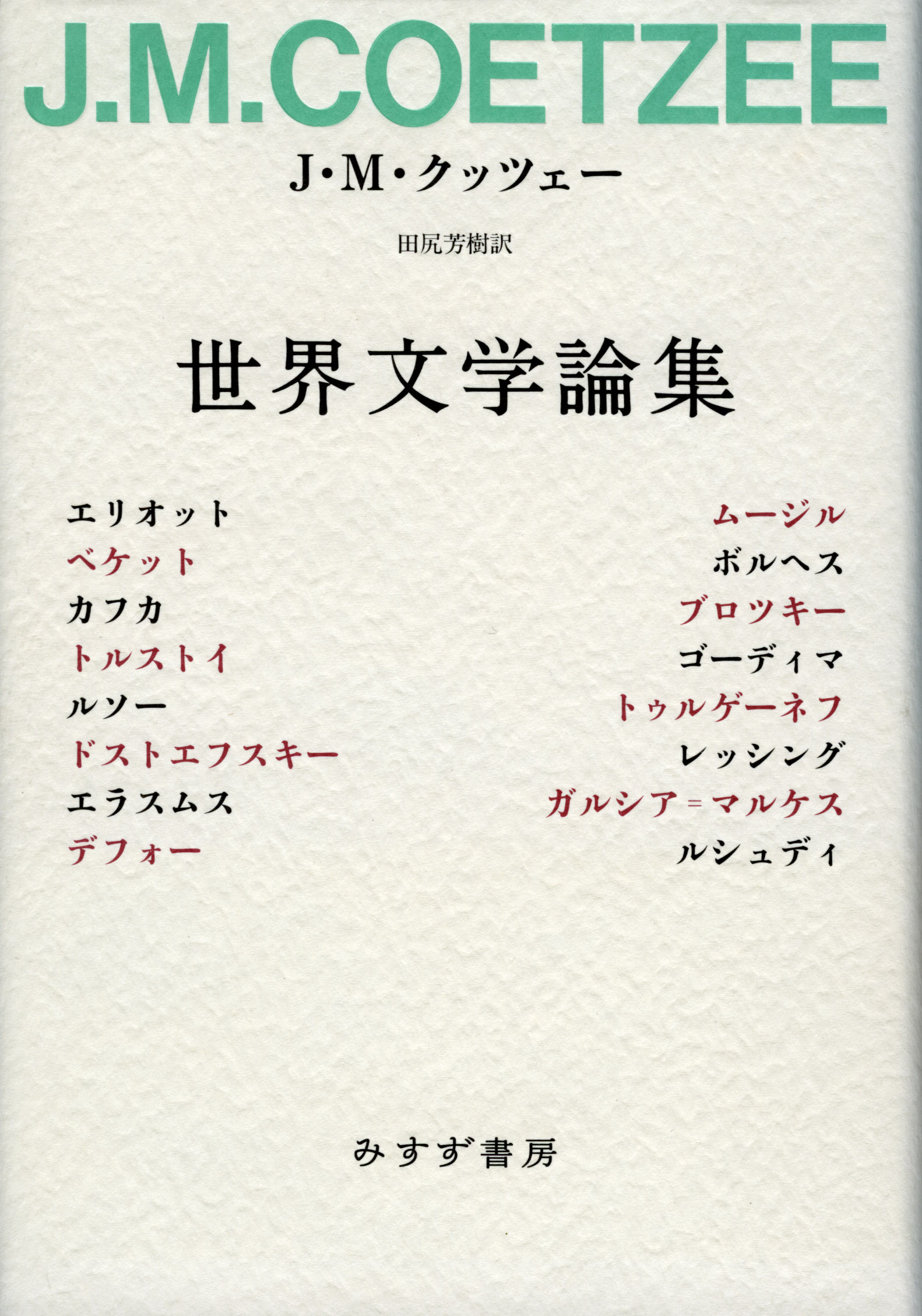
Title
Sekai Bungakuron shū (Essays on World Literature)
Size
376 pages, 127x188mm
Language
Japanese
Released
November 20, 2015
ISBN
978-4-622-07943-9
Published by
Misuzu Shobo
Book Info
See Book Availability at Library
Japanese Page
J. M. Coetzee (1940-) is a South African novelist, who is well known for works such as Life and Times of Michael K (1983) and Disgrace (1999), among others. He is the recipient of the 2003 Nobel Prize for Literature. But he was also a distinguished literary critic and scholar. He served as Professor of Literature at his alma mater the University of Cape Town until he moved to Australia in 2002. From his youth, he devoted himself to his studies as a researcher and started writing novels only after he became a university lecturer. After that, he continued to wear two hats; as a novelist and an academic. Most of his novels have been translated into Japanese. Strangely, however, his many critical essays have been totally ignored. This book is a collection of his representative critical essays, published in Japan for the first time.
To date, Coetzee has published five collections of critical essays. Among them, White Writing: On the Culture of Letters in South Africa (1988), Doubling the Point: Essays and Interviews (1992), and Giving Offence: Essays on Censorship (1996) collect full-scale academic essays that indicate delicate relationships with postmodern theories represented by deconstruction. In the 1960s, when he started his research activities, the study of literature began to change radically, affected by new theories after structuralism. Coetzee, who studied in the United States, was strongly influenced by this trend. On the other hand, he could not help feeling a certain distance from such a trend of thought, because he kept facing the serious political situation in South Africa. This conflict between postmodernism and actual politics is a key point to remember when reading Coetzee’s critical essays.
In the mid-1990s, Coetzee began to be active as a book reviewer, rather than as a scholar. Stranger Shores: Literary Essays, 1986-1999 (2001) and Inner Workings: Literary Essays, 2000-2005 (2007) mostly consist of book reviews published chiefly in The New York Review of Books. In these two volumes, he discusses various writers (mainly of the 20th century) from different linguistic and cultural backgrounds with his extensive scholarly knowledge.
This book includes translations of 14 essays selected from his books of criticism excluding White Writing. It is designed to represent his wide-ranging interests as far as possible. Coetzee, who is now a leading figure in “world literature,” comes from South Africa, which is a so-called “periphery.” Therefore he is critical of colonialism and deeply suspicious about world literature dominated by Western writers. “What is a classic?”, the opening article of the book, outlines such essential ideas, which would be useful to us Japanese when reading classical Western literature.
(Written by TAJIRI Yoshiki, Professor, Graduate School of Arts and Sciences / 2017)



 Find a book
Find a book


